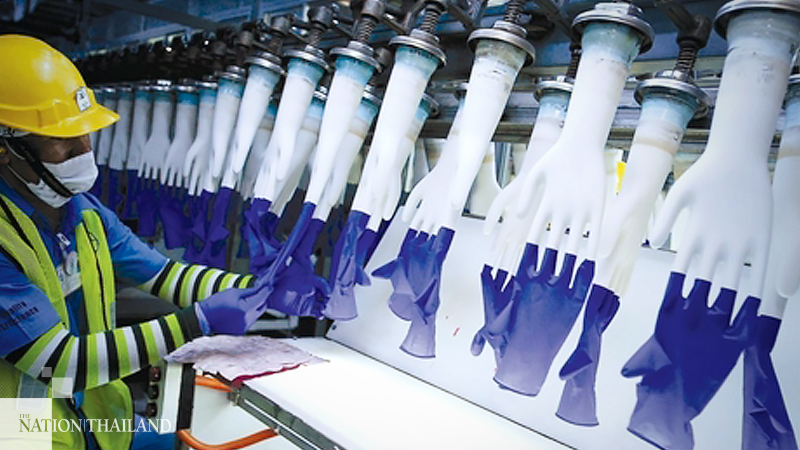
Thailand has emerged as the world’s second largest manufacturer and exporter of rubber gloves due to the soaring demand following the Covid-19 outbreak, the head of the Rubber Authority of Thailand (RAT) has said.
RAT director-general Nakorn Takkawipat said that, “With proper support from the government, we can become the global centre of rubber glove manufacturing.
“We already possess the technology to reduce allergy-inducing protein in rubber gloves, which, if implemented by all domestic manufacturers, can increase the value of their product and promote the image of Thai rubber gloves in the global market.”
Junlathep Khajornchaikul, director of National Metal and Materials Technology Centre (MTEC), said that MTEC was successful in developing the technology to reduce or eliminate protein that could cause allergy in rubber gloves.
“Our laboratory tests have confirmed that the gloves applied with this technology pass the ASTM D7427-16 standard and have zero protein that could cause allergy,” he said.
“The next step is to calculate the cost that will be added to bill of material, which we expect should be at an acceptable level for most domestic manufacturers.”
Naphawan Lekhawat, director of RAT’s Rubber Industry Research and Development Division, added that from January to October 2020 Thailand exported over 20.5 billion pairs of gloves, increasing 22 per cent from the same period last year.
“Total rubber gloves export value in 2019 was recorded at Bt37.3 billion, while this year we have exported more than Bt53.8 billion so far, a 72.4 per cent increase, due to the Covid-19 situation,” she said.
“This makes Thailand the world’s second-largest rubber gloves manufacturer and exporter behind Malaysia.”
The top five importers of rubber gloves from Thailand were: the United States (Bt20.64 billion), UK (Bt3.95 billion), Japan (Bt2.97 billion), China (Bt2.9 billion) and Germany (Bt2.49 billion).


